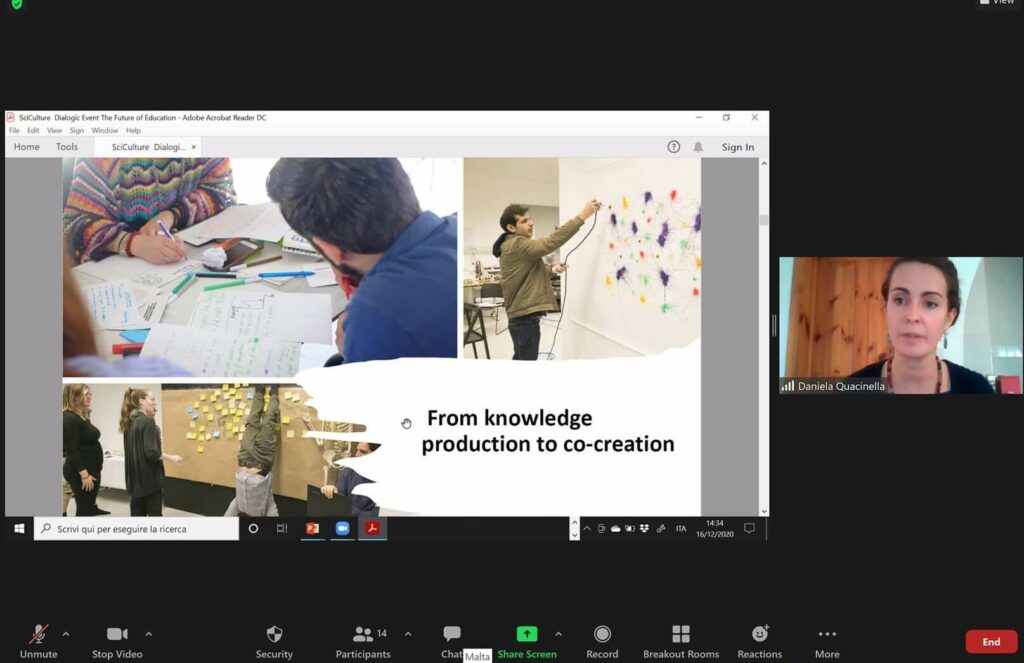Emerging Education- Creative Alternatives to Tomorrow's Problems
What are the pressing challenges facing education today? How do we envisage the future of learning? In December 2020, a group of international academics, researchers, artists, and active citizens came together to share experiences and concerns, at an event organised by the EU project SciCulture, about how education and learning environments need to shift to new paradigms.
The COVID-19 pandemic has forced the digitisation of education. Expectation management is a key concept which, if given precedence, could be a resourceful technique for stakeholders. This approach should prove to be useful as a precautionary way of anticipating forthcoming issues related to education. Innovative learning methods could supply students with the abilities to imagine alternative futures and systems of knowledge by applying three core elements; creative thinking, empathy, and iterative learning. The purpose of this approach is to embed mindful social habits for socio-cultural and scientific improvements.

When establishing emerging and creative learning environments as alternative methods, taking an inclusive and collaborative approach would assist students in exploring new ideas. Furthermore, it is essential for teachers to engage students into critically thinking of ways to materialise their ideas and form human connections while adapting to their current needs and to allow them to use their abilities to their fullest.
How do we prepare society for emerging trends in education? In what ways can we challenge new educational paradigms? Transdisciplinary approaches may be the most efficient means to discover innovative strategies since by their nature, they require collaborative efforts between various experts from distinct disciplines and/or backgrounds. Holistic approaches are primarily effective in terms of validity, reliability, and quality through the unification of intellectual disciplines operating beyond their own frontiers.
The adaptability of students is instrumental when considering new educational trends. It allows them to be well informed and equipped with the necessary skillset and competencies to develop conscious social responsibility and to get the most out of their academic experience. This approach would give students the opportunity to nurture their own capabilities and would effectively contribute to collaborative initiatives. The emergence of innovative technological measures in educational facilities calls for the inclusion of disadvantaged social groups, particularly in the provisions of their technical literacy and the necessary tools to be able to partake in these initiatives, especially during such exceptional circumstances.
SciCulture Science, Arts and Entrepreneurship Intensive Course was organised by the University of Malta, University of Exeter, University of Bergen, TU Delft, and Science View. Funded by the Erasmus+ programme of the European Union. This project has been funded with support from the European Commission.
